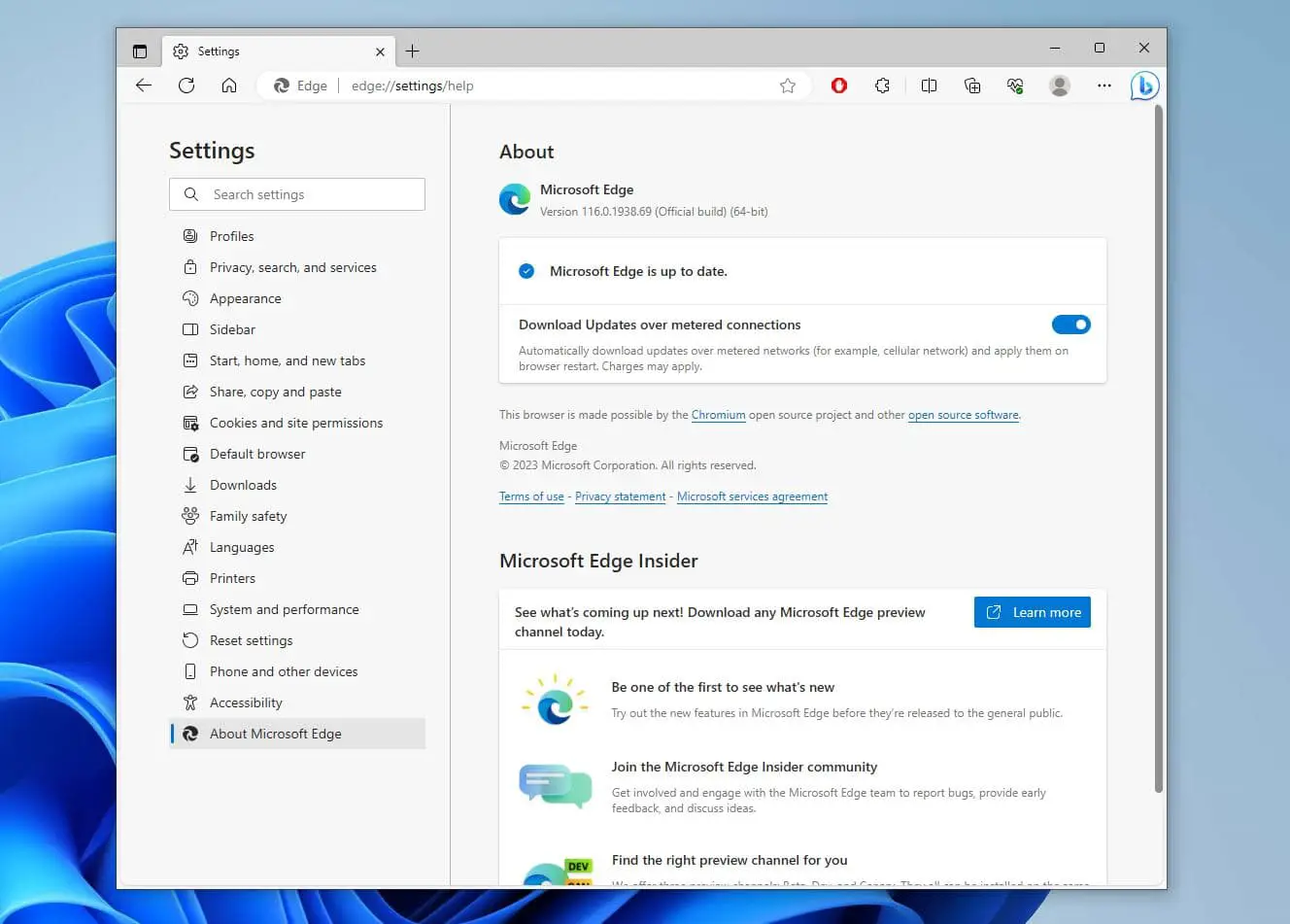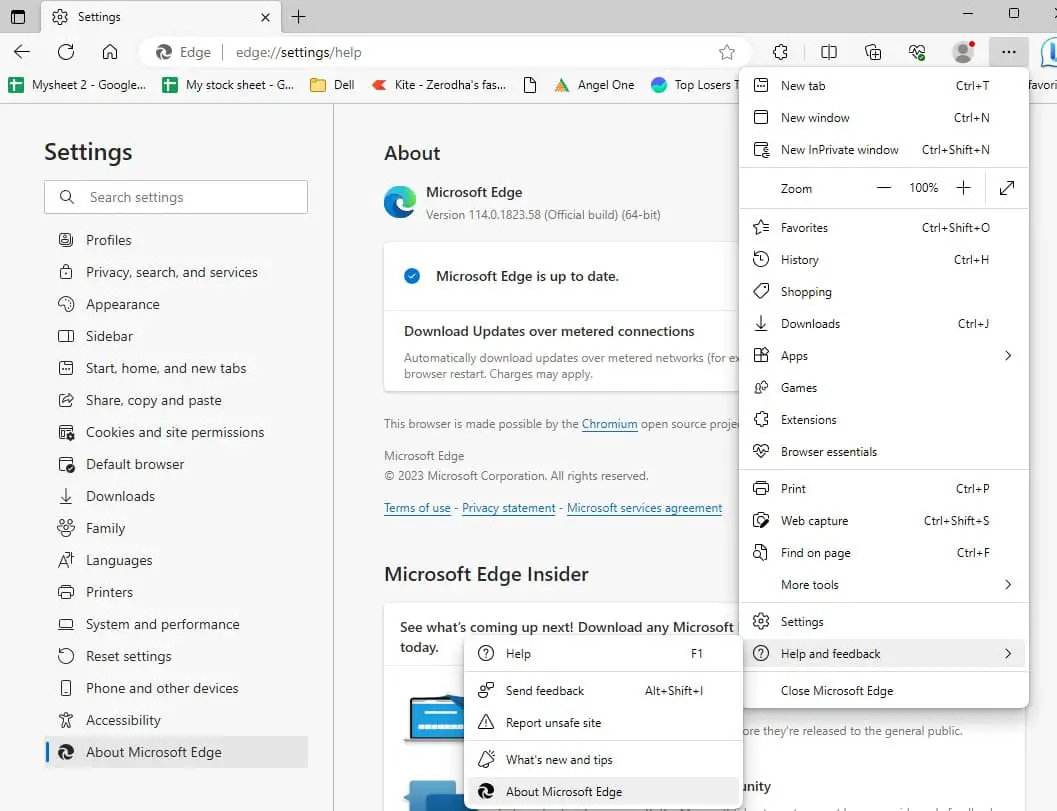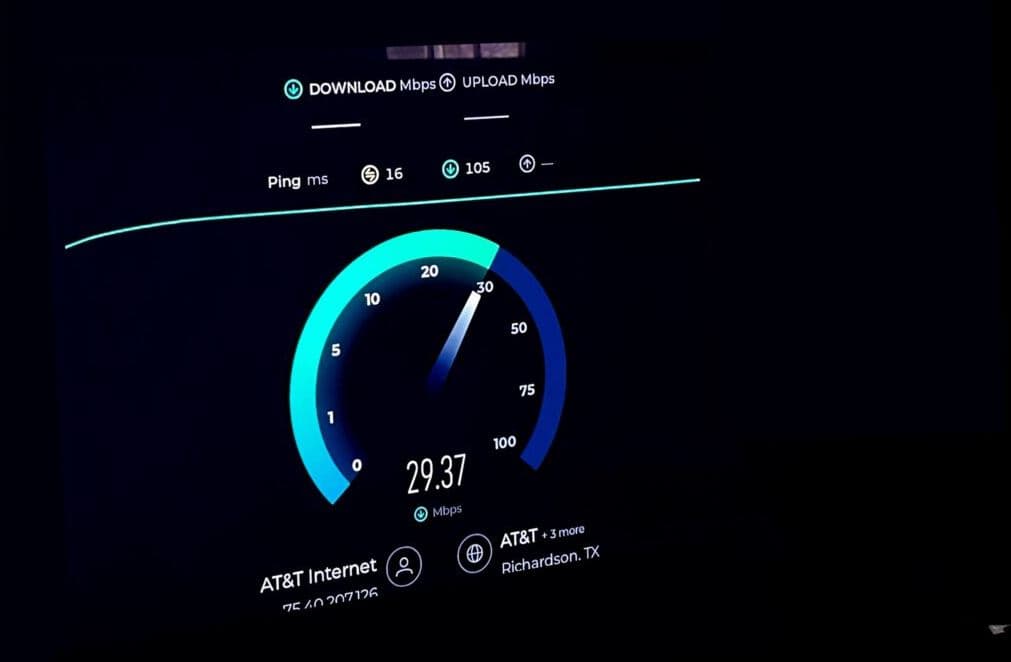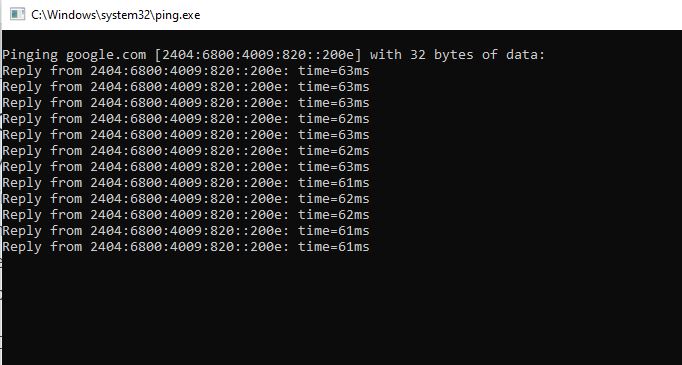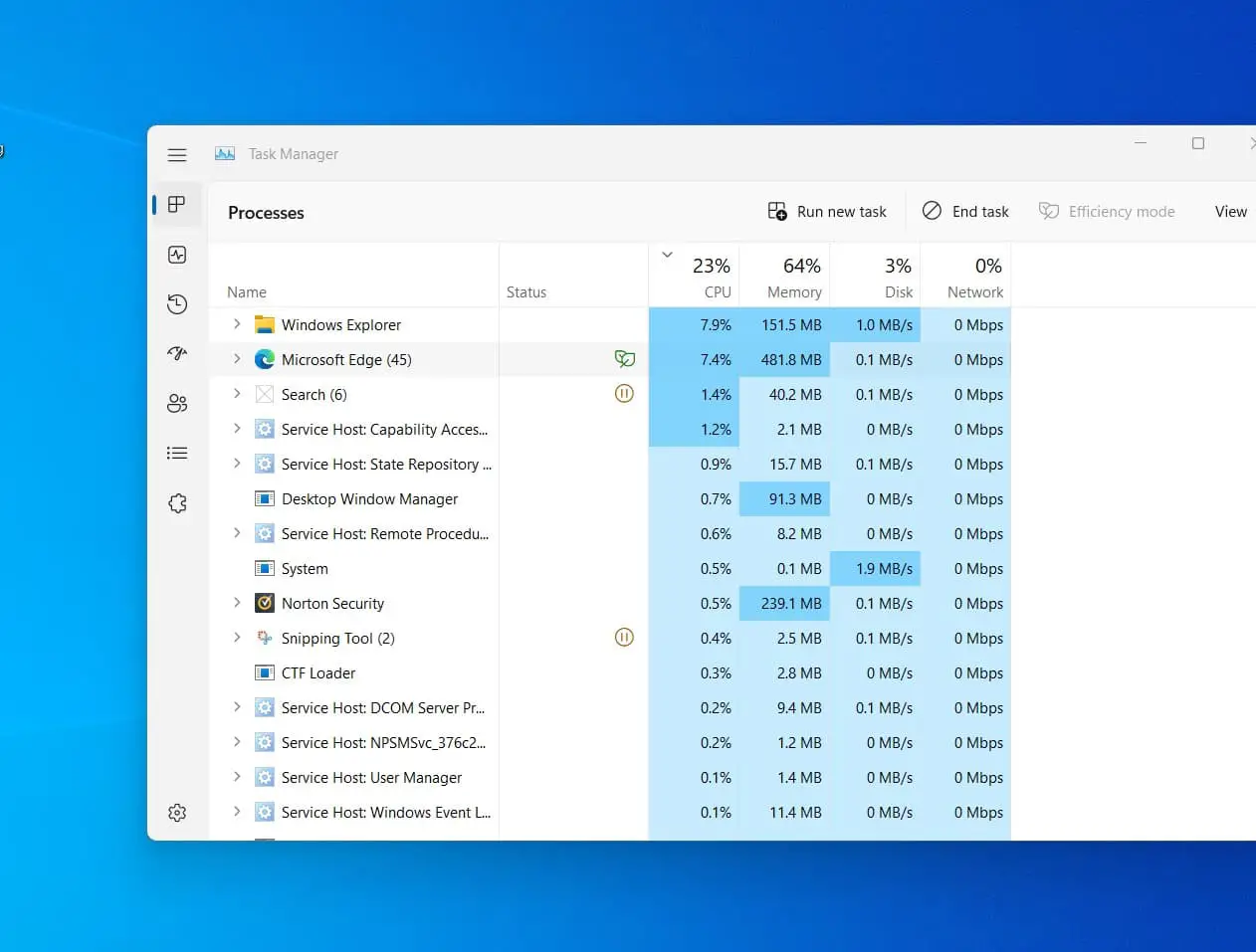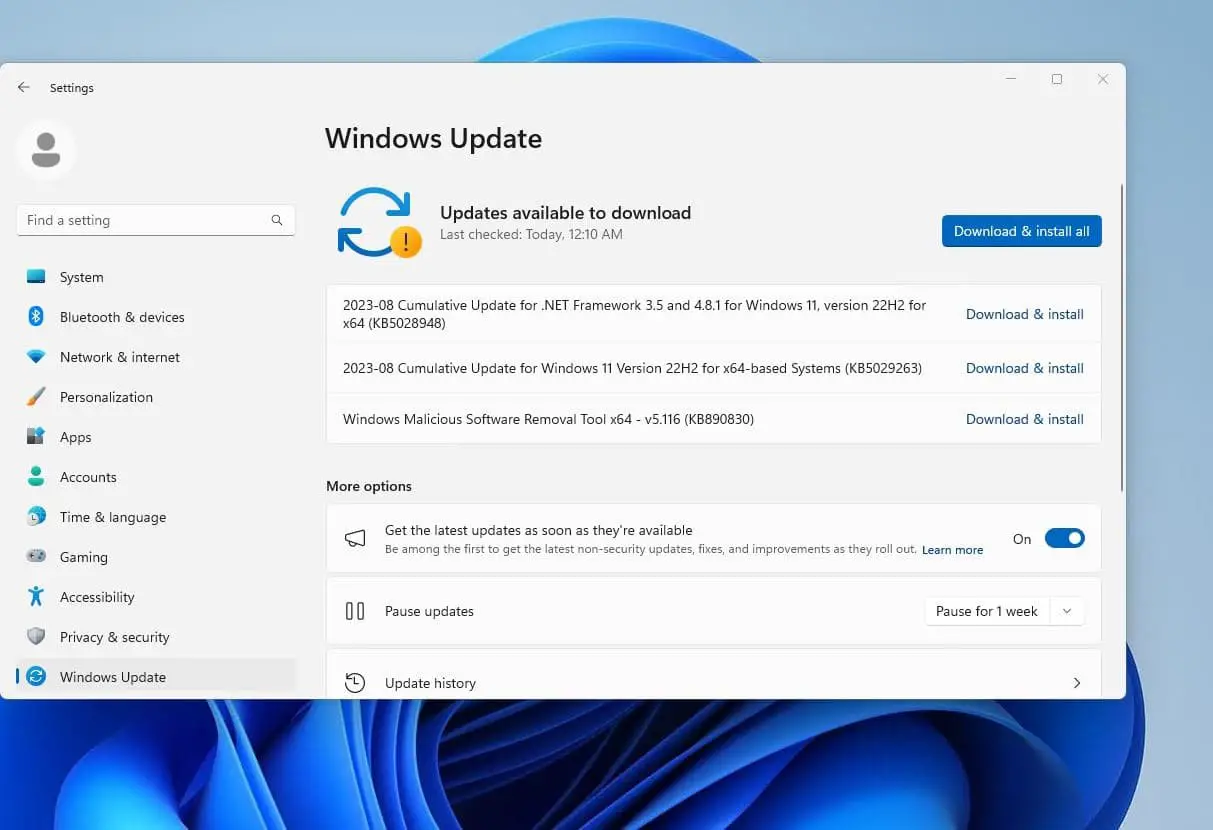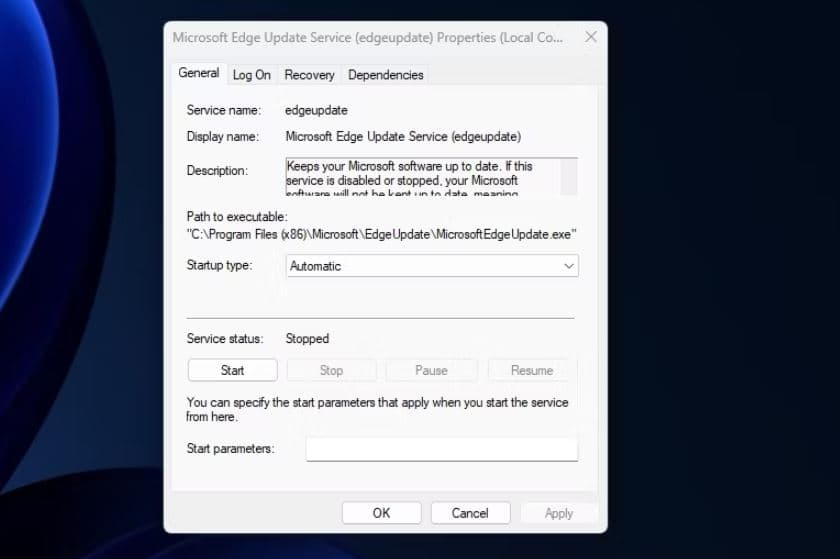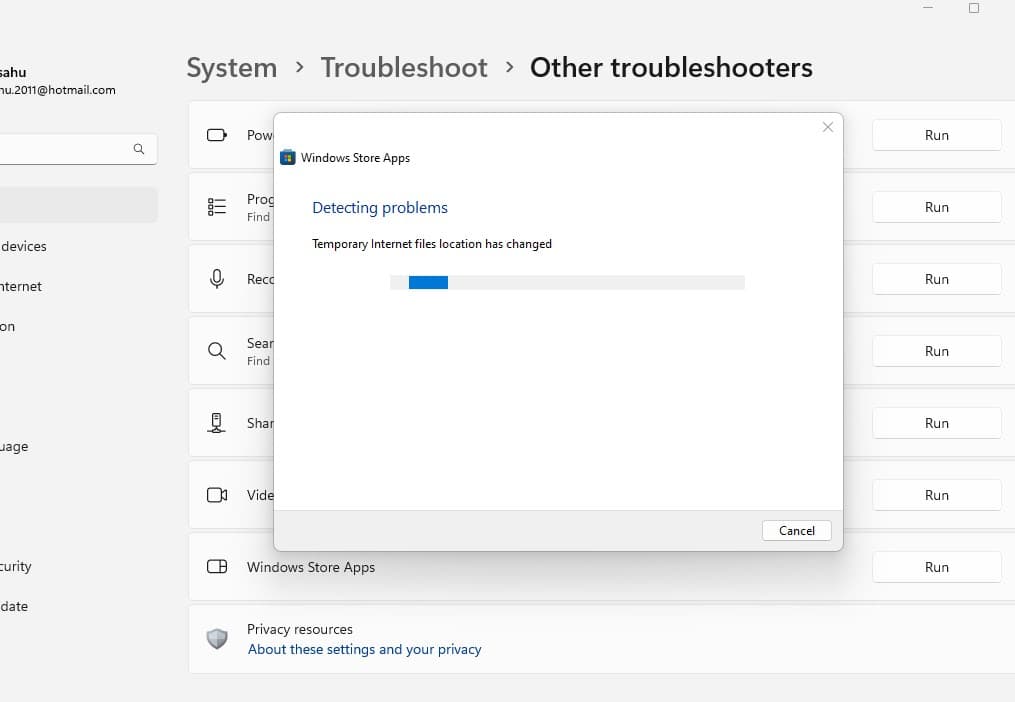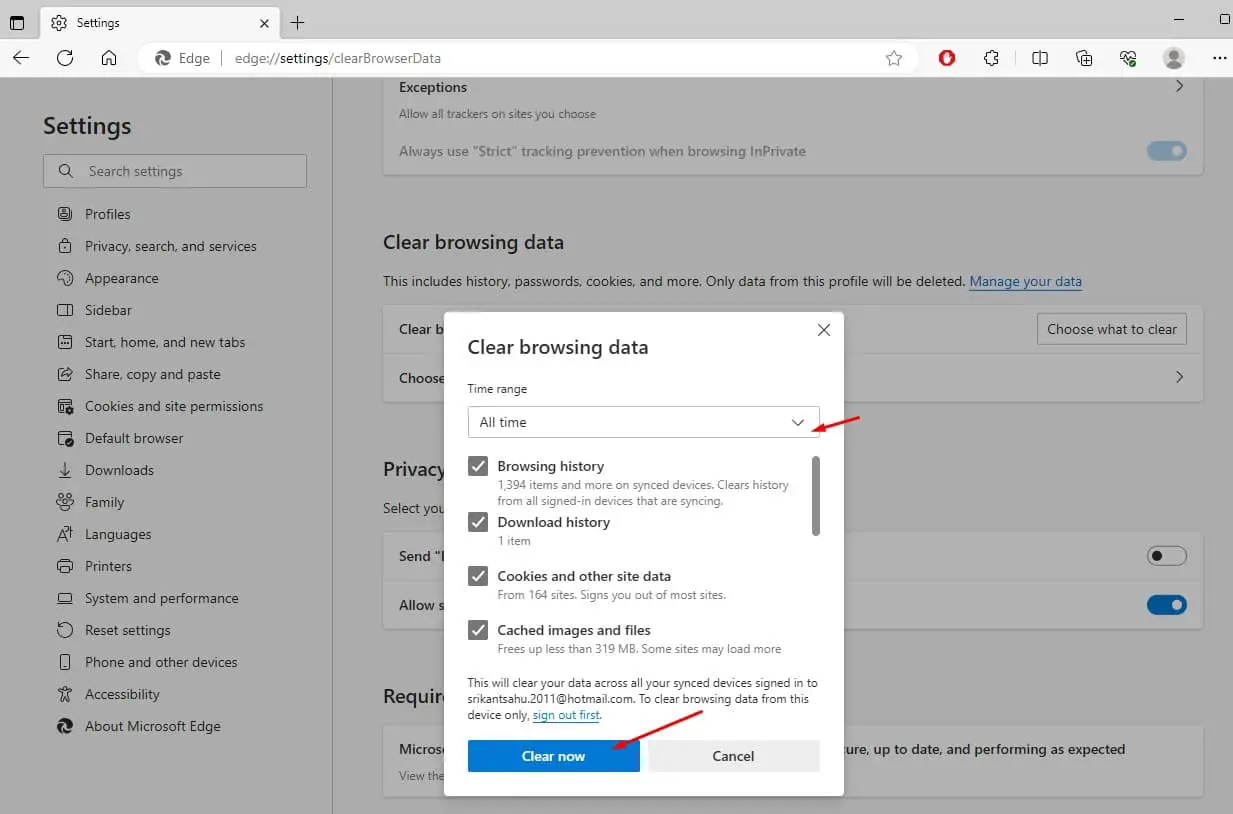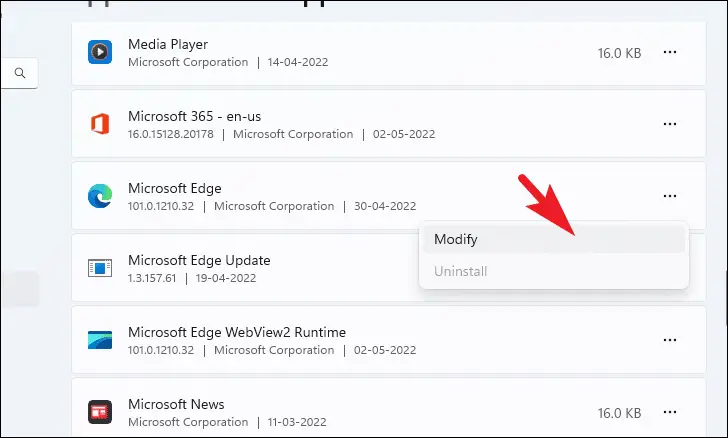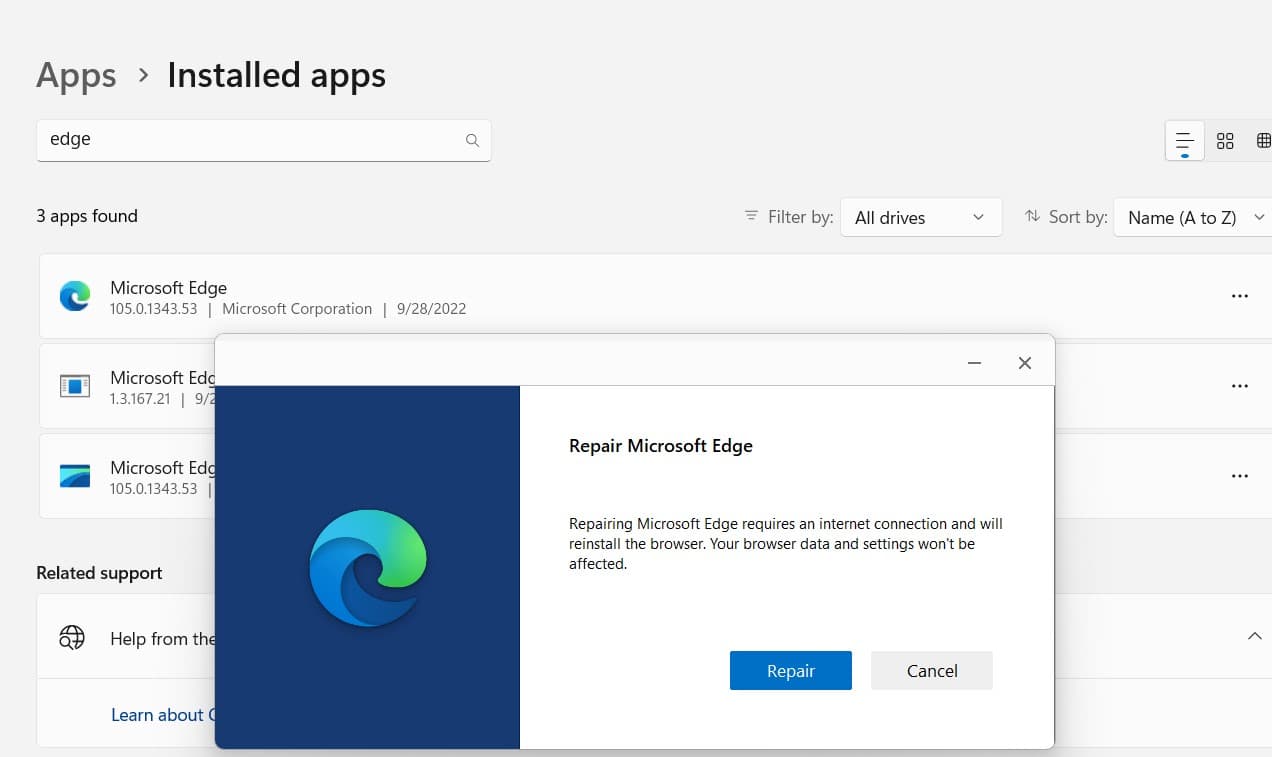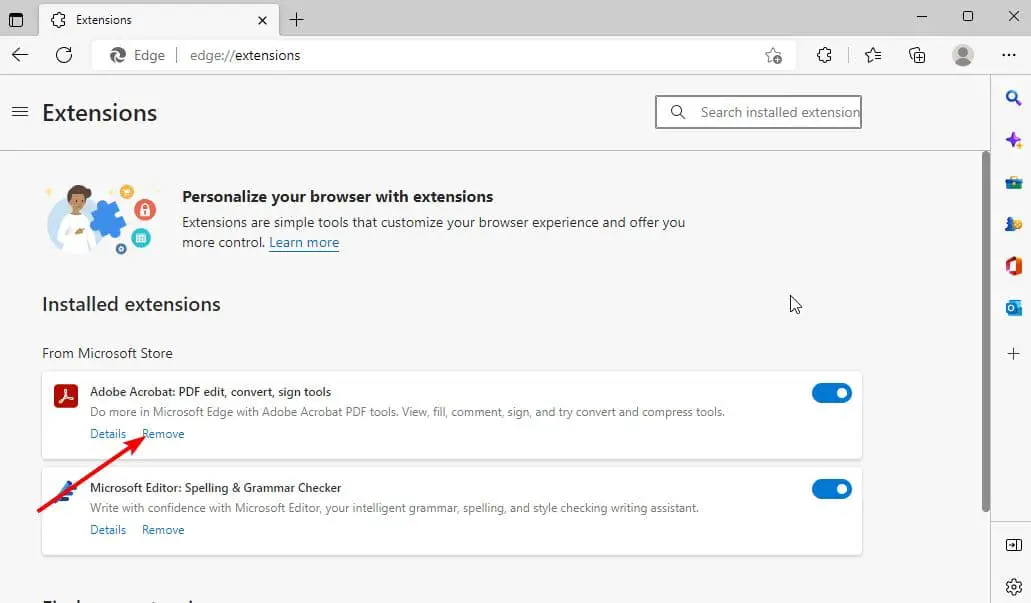Microsoft Edge, the default web browser on Windows 11, is Popular for its sleek interface and robust features. The company regularly Update Microsoft Edge with the latest bug fixes, Security enhancements and includes new features. And it is set to install updates automatically to protect against malware, phishing, and cyberattacks. Latest Microsoft Edge updates often improve speed, stability, and compatibility with modern websites. Keeping your browsers updated is important, however, at times you may experience Microsoft Edge not updating on Windows 11. Several users report Microsoft Edge fails to download updates or the browser not working on Windows 11. This article explores the reason behind this and how to update Microsoft Edge Manually on your device.
How to update Microsoft Edge
Update Microsoft Edge in Windows 11 is a simple and straightforward process. First, ensure you have a stable internet connection as the browser will need to download the update from its server.
Microsoft Edge update download
- First Open Microsoft Edge and click on the three horizontal dots in the top-right corner to access the menu.
- From there, select “Settings” and then choose “About Microsoft Edge” from the left sidebar.
- The browser will automatically check for updates and prompt you to install any available updates.
Alternatively, you can open the Edge menu, -> help and feedback then click About Microsoft Edge to check for later updates.
Also, you can download the Microsoft Edge offline installer on the Microsoft update catalog to get install the latest Edge version on your PC.
Microsoft Edge not updating
Keeping your browsers updated is important to eliminate any known bugs and issues, and optimize overall browser performance. However, sometimes Microsoft Edge browser not updating or fails to update.
Problem with an internet connection, or if due to some reason browser installation is damaged or corrupted, it may cause difficulty Update Microsoft Edge. Again Accumulated cache and cookies can interfere with updates Clearing them might resolve the issue. Security software can sometimes block the update process, again Misconfigured browser settings or update settings can hinder the process.
Check Your Internet Connection
The first step in troubleshooting any update issue is to ensure your internet connection is stable. A weak or intermittent connection can prevent Microsoft Edge from downloading updates.
You can use various online tools like Speedtest.net or Fast.com to check the speed and stability of your internet connection.
In addition, A ping test helps determine the latency or delay between your computer and a remote server. Press the Windows key + R, type ping google.com -t and click ok. Observe the results. Consistently high ping times or dropped packets could indicate a connectivity issue.
If necessary, restart your router, Also If you’re using a Wi-Fi connection, try switching to a wired connection and try updating it again.
Restart and Reopen Microsoft Edge
Microsoft Edge may fail to update due to a temporary glitch. Sometimes, a simple restart can do wonders, it refreshes the process, clears temp glitches, and most probably fix the update problem.
Close all instances of Microsoft Edge and reopen it. This action can sometimes trigger any pending updates.
- Launch the Task Manager using Ctrl + shift + Esc
- Right-click on Microsoft Edge, and select End task.
- Reopen Microsoft Edge and check if the problem persists.
Update windows 11
The latest Windows 11 updates come with the latest bug fixes, improvements and compatibility updates that could address issues related to Microsoft Edge and its updates. Edge updates are often linked to the overall Windows system updates. Let’s check and install the latest Windows 11 updates before update the Microsoft Edge browser.
- Press the Windows key + X and select settings
- Go to Windows Update and hit the check for updates button,
- If there are pending updates, allow them to download and install
- Once done, reboot your computer to apply them and then try updating Edge again.
Update Windows 11 can potentially resolve issues related to Microsoft Edge updates, as it brings a range of improvements and compatibility enhancements.
Restart Microsoft Edge Update Service
Microsoft Edge Update Service is a critical service that ensures Microsoft Edge is up to date. If due to some reason, this service is not running, Microsoft Edge may fail to download any new updates.
- Press the Windows key + R, type services.msc and click ok
- Scroll down to locate the Microsoft Edge update service, right-click on it select restart.
- If the service not started, double-click on it to open Microsoft Edge Update Service properties,
- Change the Startup type to Automatic and click the Start button under the Service status option.
- Click Apply and OK to save the changes.
Use the Microsoft Store Troubleshooter
The built-in Microsoft Store apps troubleshooter is helpful eliminate most of the UWP app issues include Microsoft Edge on Windows 11. The troubleshooter is designed to automatically identify and fix common issues that may be preventing Windows Store apps, including Microsoft Edge, from functioning correctly.
- Press the Windows key + X and select settings
- Go to system then troubleshoot and click on Other troubleshooters,
- Click Run next to Windows Store apps and follow the on-screen instructions.
- After running the troubleshooter, try updating the Microsoft Edge again.
Clear Browser Cache and Cookies
Accumulated cache and cookies can interfere with updates. Clearing the browser cache and cookies in Microsoft Edge can indeed be beneficial in resolving update issues.
- Open Microsoft Edge, Click on the three dots (…) in the top-right corner.
- Go to Settings > Privacy, search, and services.
- Under Clear browsing data, click on Choose what to clear.
- Select Cookies and other site data and Cached images and files.
- Set the Time range to All time and Click on Clear now.
By clearing these, you provide a clean slate for Edge, reducing the chances of hindrances to updates and potentially improving overall browser performance.
Repair Microsoft Edge
Windows 11 includes a repair feature that can be used to resolve minor app issues, including the Microsoft Edge not updating problem on your PC.
- Right-click on Windows 11 start menu select Installed Apps
- Scroll down to locate Microsoft Edge, Click the three-dots menu icon next to it and choose Modify.
- In the Repair Microsoft Edge WebView window, click the Repair button.
Note: Ensure the Internet connection working as it downloads fresh Microsoft Edge files from the server.
After the repair process is complete, check if you can update Microsoft Edge.
Disable Extensions in Microsoft Edge
Extensions expand the browser functionality, but sometimes it may be the reason behind Microsoft Edge problems. Disabling extensions can help eliminate potential conflicts and pave the way for a smoother update process.
- Launch Microsoft Edge, Click on the three horizontal dots (…) in the top-right corner to open the menu.
- Select Extensions from the dropdown menu, then Manage Extensions.
- You’ll see a list of installed extensions. Toggle off the switch next to each extension to disable them, Also there is remove option to delete it from Edge.
After disabling the extensions, restart Microsoft Edge and Try running the update process again to see if the issue persists.
In addition, Microsoft recommends, “Verifying Trusted Sites for Microsoft Edge Updates. Ensure that both https://msedge.api.cdp.microsoft.com (used for update checks) and *.dl.delivery.mp.microsoft.com (for initial installs and updates) are permitted.
Also read:
- Microsoft Edge not working after the Windows 11 update<
- Is Microsoft Edge slow after Windows 11 update? Try these solutions
- Is WIFI internet is slow on Laptop but fast on mobile? Let’s fix it
- Wireless Adapter Missing or not showing up on Laptop [Solved)
- How to Take a Screenshot on windows 11 and windows 10
